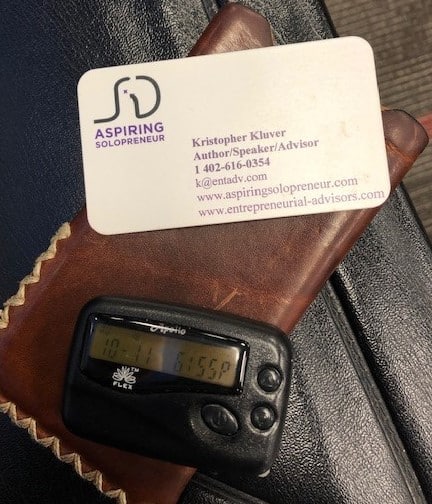Here’s the takeaway: Start on time, end on time, and turn off your phones.
Football coach Vince Lombardi said “If you’re early, you’re on time. If you’re on time, you’re late.” Why is it so important to begin your meetings on time, and why is it important to stop on time?
It comes down to basic respect and the actual value of time. If you look at leadership team meetings from a sheer dollars-and-cents perspective, think about how much it costs to have you together. How much does it cost per minute? Let alone, how much does it cost you if you’re wasting additional time because someone is frustrated about another person’s lateness?
If you can get to meetings five minutes early, you’ll start the meeting on time. This immediately puts the meeting on the right track and stops the internal dialogue rants happening in people’s heads because “She was late again and has no respect…” The intention with ending meetings on time is the same exact idea. Most of us constantly have busy days scheduled, and just because chatty Kathy wants to keep talking doesn’t mean that I don’t have a call to get on, or some other place to be. If you don’t end on time, you’ll push back people’s other commitments. This will end up collapsing the rest of their meetings, and their day will go sideways.
This often applies to business owners. Some business owners, particularly business owners who are visionaries, might be in a habit of showing up five or ten minutes late. The business owner is thinking, “Well, it’s only five or ten minutes, nobody will care.” Rarely will employees actually tell their boss that they care, but I PROMISE that they do. Fear of calling out the boss overrides the disrespect, but it’s still counterproductive. The little squirrels going inside people’s lizard brains are thinking, “This guy’s pissing me off. I know she is important, but it’s disrespectful to my time to be late.”
Another thing I push in meetings is to turn off electronics. The intention with this is that if everybody has their phones in airplane mode, it lets them stay focused. If you see someone texting, sure, they might be texting about something work-related and appropriate. Or, they might be making a date for later that day, whatever it is. The rest of the team doesn’t know. And as soon as one starts, others will follow and distraction leads to loss of focus. If you receive a great text, it’s easy to lose focus by taking you somewhere else, not in the present, in that current meeting. If you receive a bad text, it’s easy to get lost in it, which ends up pulling you away.
I always start my sessions by asking if anyone has any critical, “hair-on-fire” issues that day that require them to have their phone. Occasionally, someone will, and we talk about it. Then everyone knows what’s going on, and they are much more understanding. If not, I ask everyone to shut their devices down and check them only on breaks. It works really well.
To be perfectly candid, I hate most meetings, especially meetings where nothing happens. So, when you do have to have a meeting, make sure you get everyone there, 100%. Here’s your goal: When you get together for meetings, how can you be as effective as possible while together? That means you start on time, end on time, and turn off your electronics in the middle.
If you have questions about how to make your organization’s meetings more efficient, let me know. Feel free to reach out anytime: There’s never any obligations. Stay tuned for next week’s post on how to increase efficiency not just in your meetings, but in your personal work habits.


